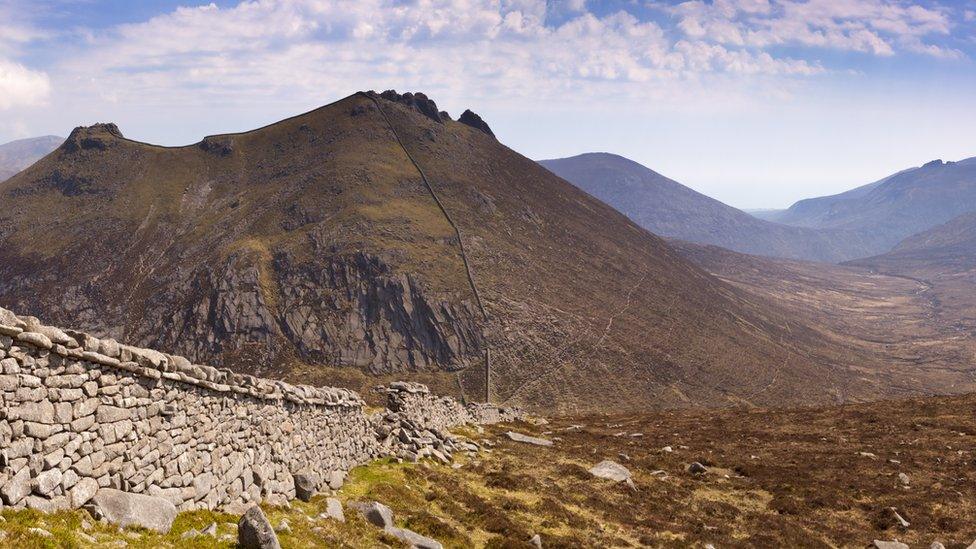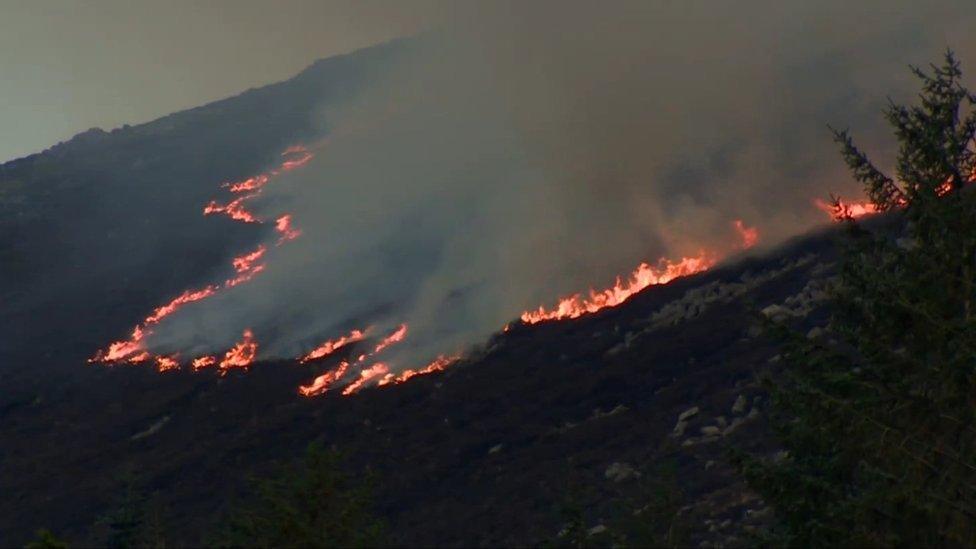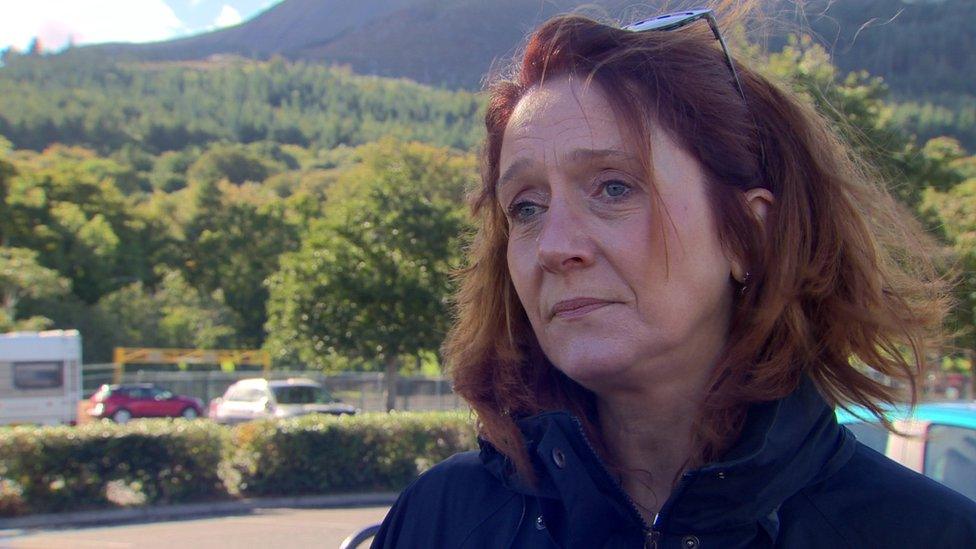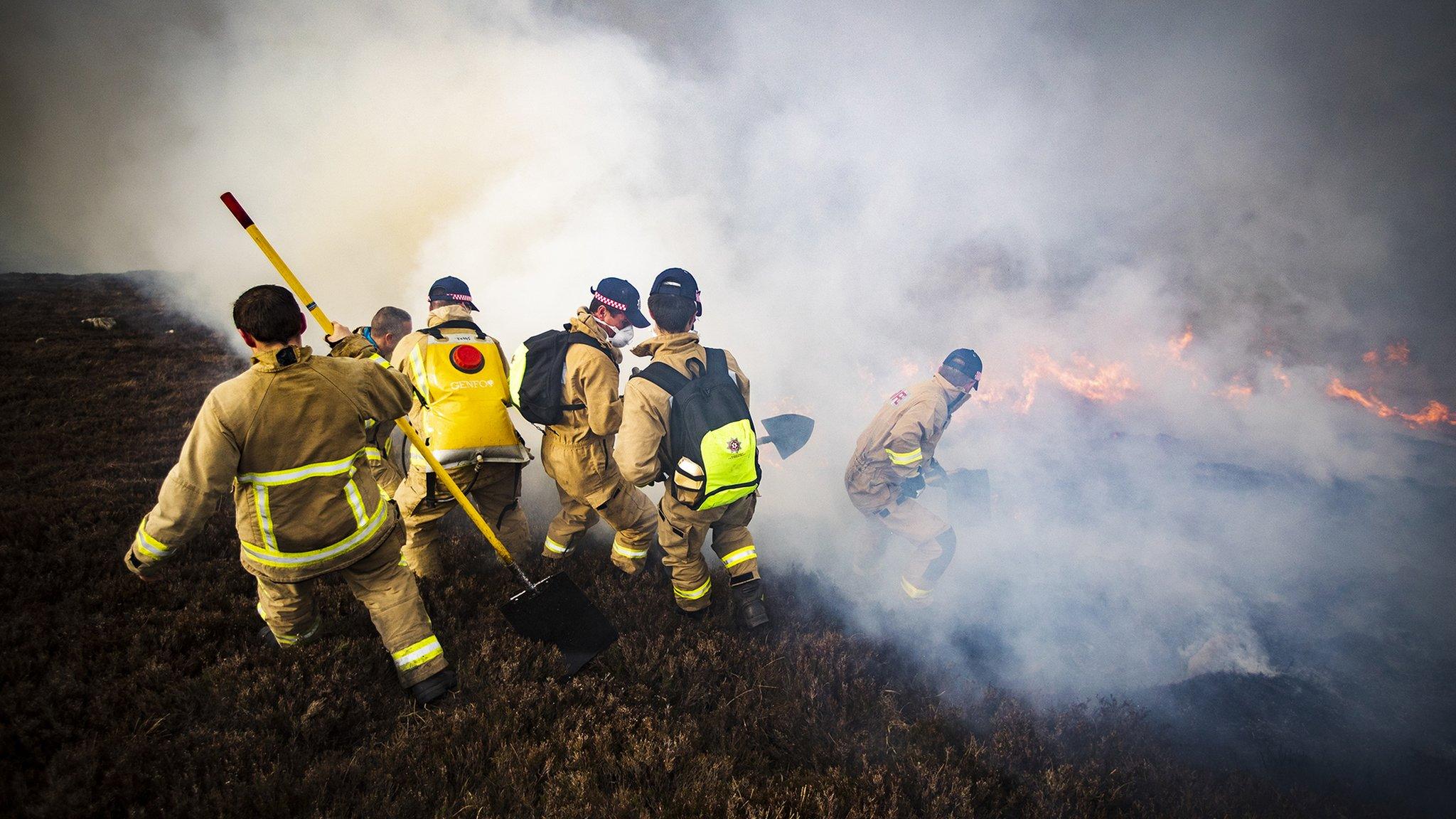Mourne Mountains: Work begins on long-term plan for area
- Published

The mountains are a mix of privately and publicly owned land
An organisation has been appointed to carry out research on the long-term future of the Mourne Mountains.
The Department of Finance has appointed The James Hutton Institute from Scotland to carry out the work over the next three months.
They plan to host sessions to gather information from various groups who live or work on the mountains.
The research will focus on proposals to protect and enhance the area.
"Everyone recognises that it is a unique asset here in Ireland and it needs to be protected," said Finance Minister Conor Murphy.
"But also there's a community who lives here, there's a community that farms here, there's a community that does business here. And we need all of those various aspects together to develop a plan which everyone agrees on which is in the best interests of this beautiful area".
The researchers will work with the department's innovation lab.

Last year firefighters battled a large gorse fire in the Slieve Donard area
Previously, plans were mooted about making the Mournes Northern Ireland's first National Park, and installing a cable car on Slieve Donard.
With land across the mountains in both public and private ownership, researchers are aware of the complexities.
"There's always a tension in land use potentially between different things, so you've got food, environment, biodiversity, people," said Antonia Boyce, Climate Change Incubator Director at The James Hutton Institute.
"And really our role is to help bring together these different views so we can have something that works for everybody and everybody really can share in".
One workshop to launch the research has already been held, with more to follow.

The National Trust's Heather McLachlan says the Mournes must be managed in an 'integrated' way
"There are so many reasons why this should be managed in an integrated way, and there should be hopefully some sort of funding to come with that," said Heather McLachlan from the National Trust, one of the landowners.
"Coming in from a conservation background and seeing all those people in the room, you thought, well, maybe there are going to be some very differing views, but actually there weren't.
"They were all so clear, that there needed to be some kind of join-up.
"It was actually just one of those moments when the hairs on the back of your neck stood up and said, yes, we're definitely on to something here".
Related topics
- Published23 April 2022

- Published30 June 2021

- Published26 April 2021
